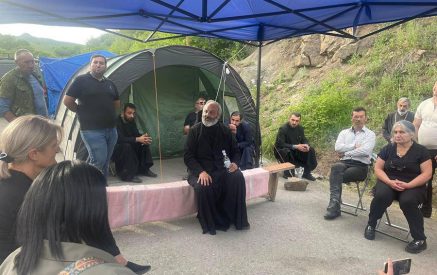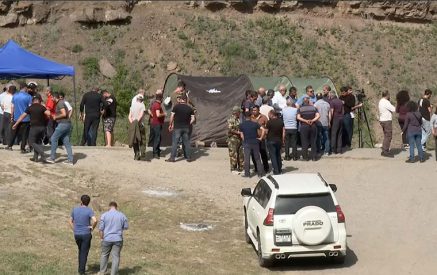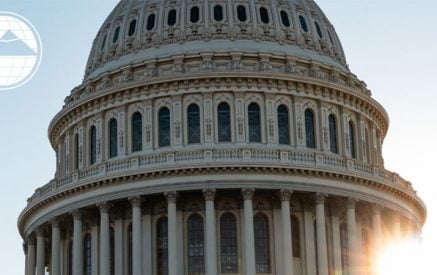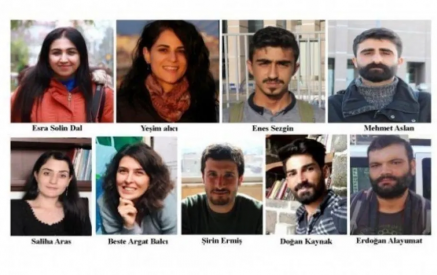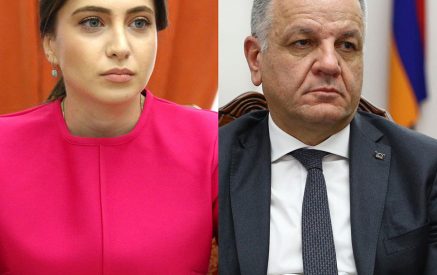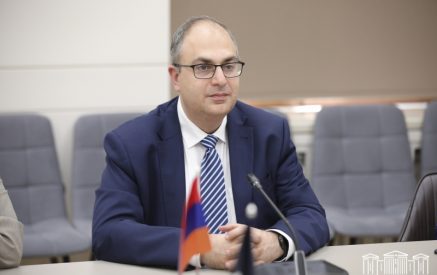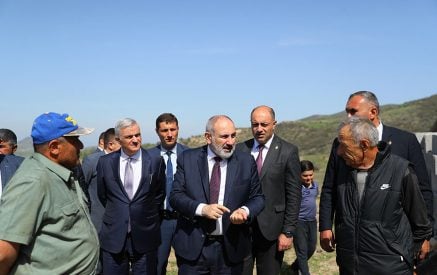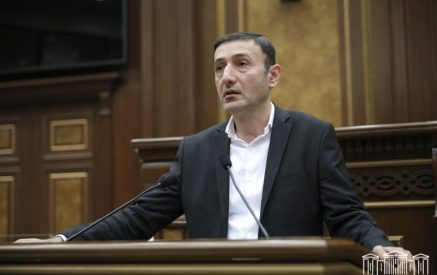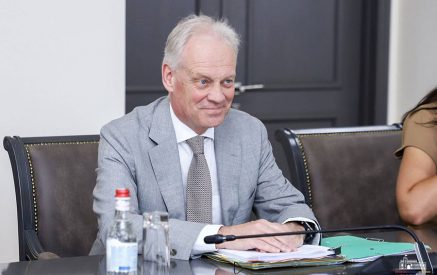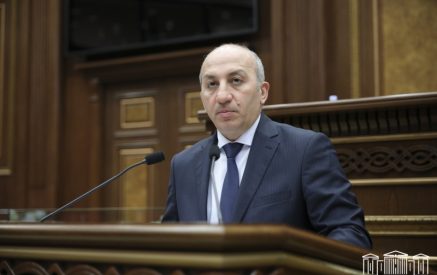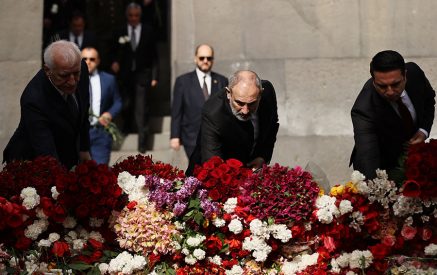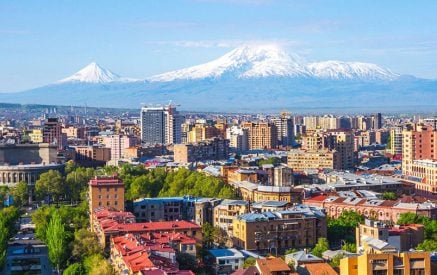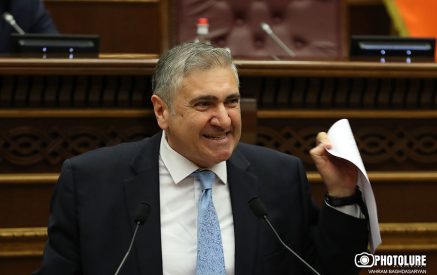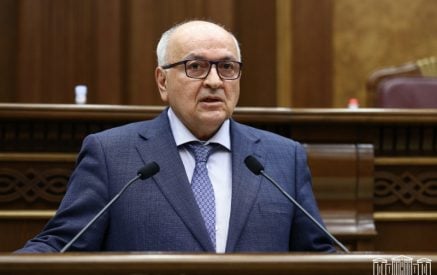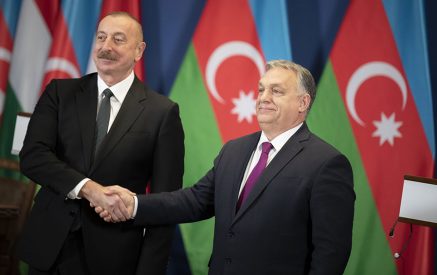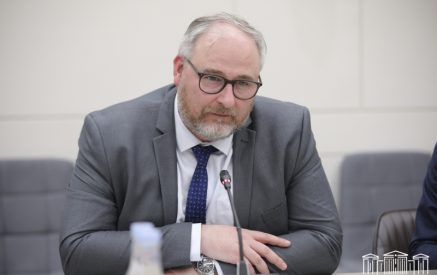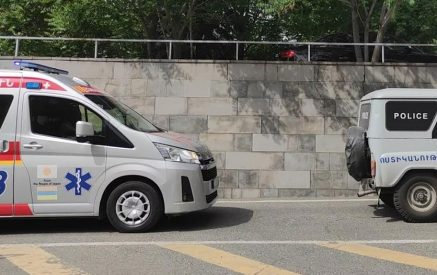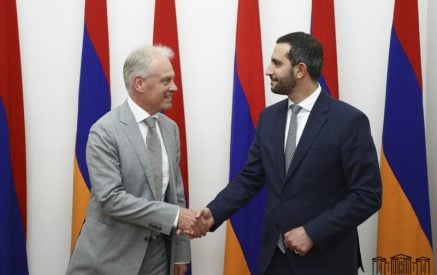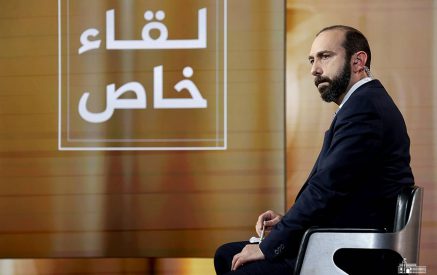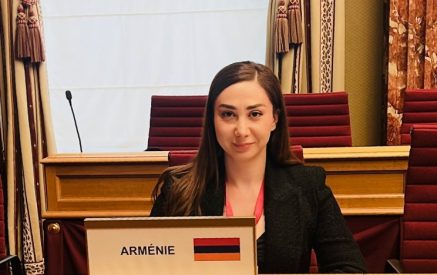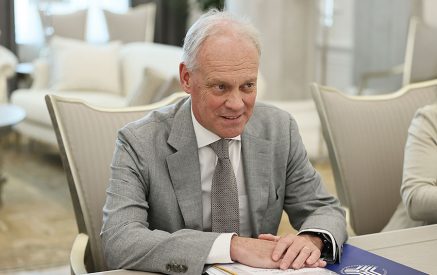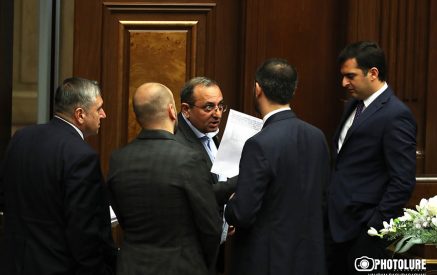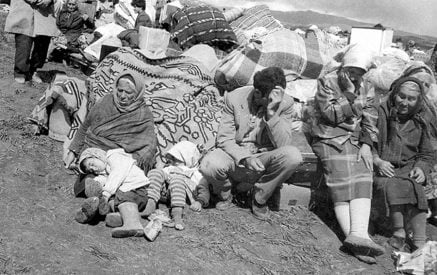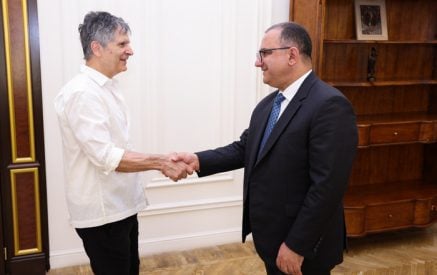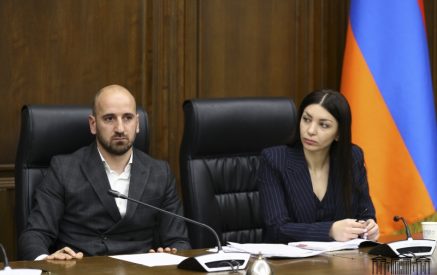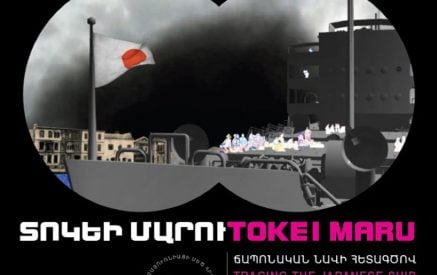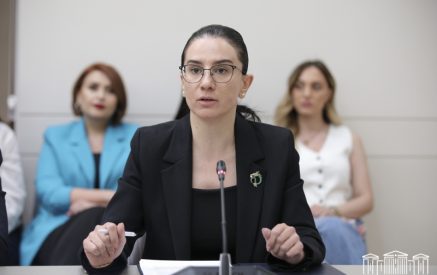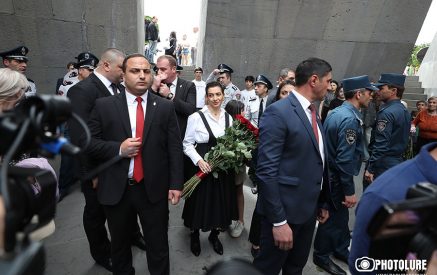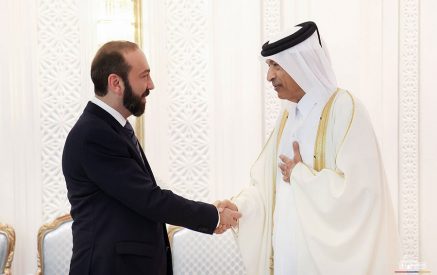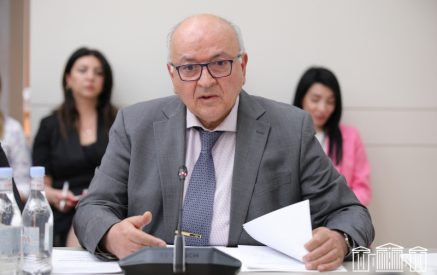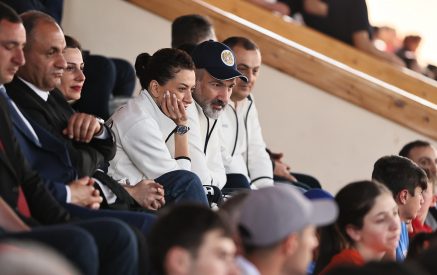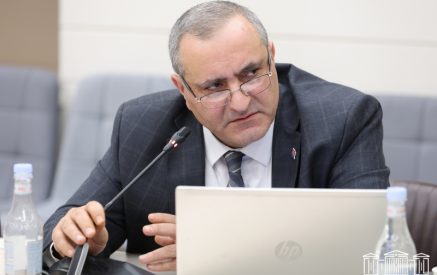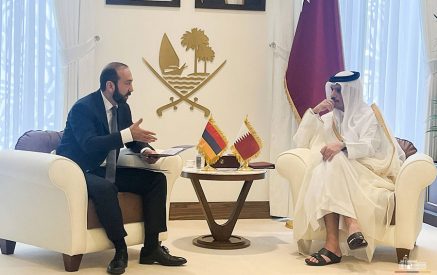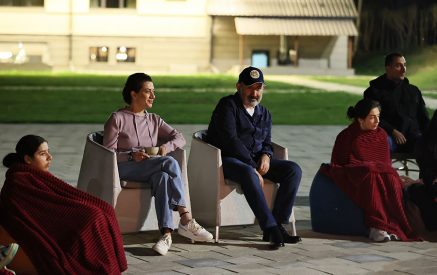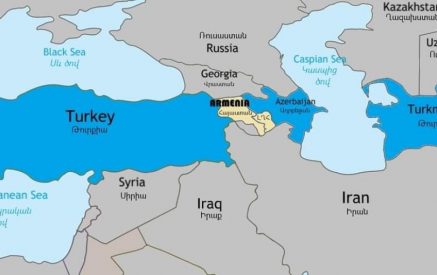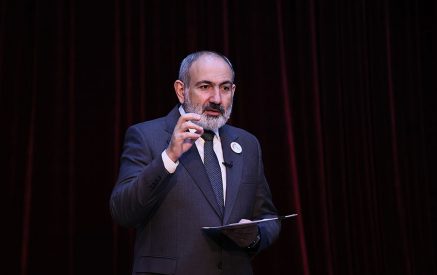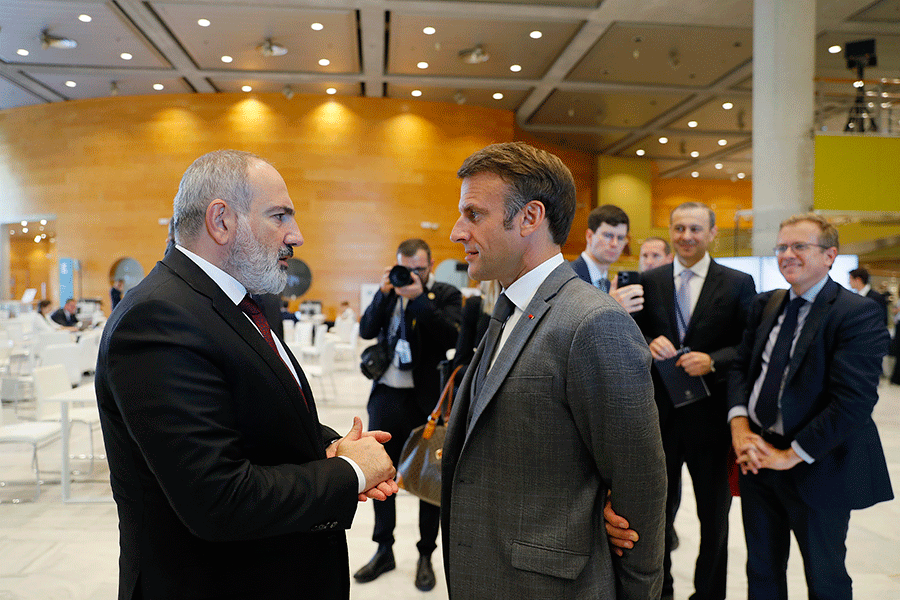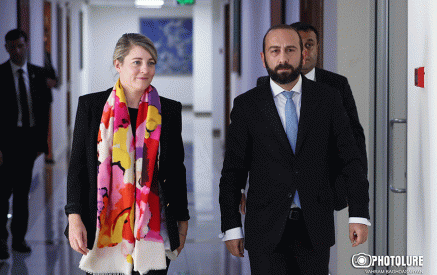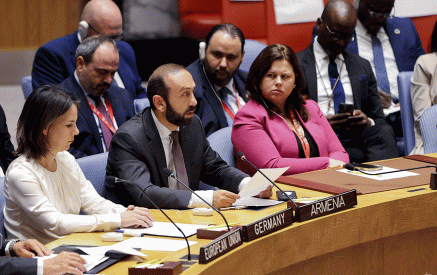by Dr. Hriday Sarma
Prime Minister Nikol Pashinyan has defended Armenia’s armaments deals with France and India, emphasizing the situational necessity for the country’s national security and defense. Azerbaijan opposes this stance, viewing the military sales as exacerbating the arms race in the South Caucasus region. The development marks a significant shift from Armenia’s long-standing reliance on Russia in its foreign policy, while underscoring the need to creating an international dialogue in the post-war reconstruction of war-ravaged Nagorno-Karabakh.
Following it is factually debated whether this trilateral cooperation, driven by situational imperatives, is genuinely taking place, or if it simply represents an effort to establish a connection between the three countries that lack deep historical ties.
Read also
France-India Growing International Synergies
During President Macron’s recent visit as the chief guest for India’s 75th Republic Day celebrations, the two countries unveiled a “defence industrial roadmap”. The plan places a strong emphasis on “co-design and co-development,” or cooperative manufacture of military weapons. The two countries reached notable agreements on space collaboration, and both countries pledged to work together to produce defense hardware, such as helicopters and submarines, for the Indian military and ‘friendly nations’.
One of the key focuses of this partnership is the Indo-Pacific strategy, wherein both countries have recognized the importance of an inclusive, free, and open region. France has endorsed India’s permanent membership in the UN Security Council on several occasions, and its acknowledgment of India’s pivotal role in global governance serves as evidence of the two countries’ mutual trust and strategic alignment.
The expansion of their respective space and cyber capabilities is a top priority in this expanding partnership, which also touches on other important domains like cybersecurity. The breadth of this partnership is well demonstrated by a shared vision for space cooperation, which calls for working together on interplanetary missions and exchanging satellite data. A shared commitment to enhancing defense capabilities is further highlighted by the 2021 agreement on combined military capabilities development and France’s assistance in modernizing India’s armed forces.
Moreover, India and France’s collaboration on climate change and sustainable energy projects, such as the Indo-Pacific Oceans Initiative and the International Solar Alliance, demonstrates a more comprehensive understanding of security that includes energy and environmental security. The foundation of the strategic alliance between France and India is an all-encompassing approach to security, which encompasses both traditional and non-traditional sectors. It indicates a deep and multifaceted collaboration that aligns the national security objectives of both countries.
A trilateral cooperation framework already exists between France and India (the France-India-UAE model), which could be replicated with Armenia, creating a new strategic trilateral axis. Such an alliance among France, India, and Armenia would build upon their shared national security objectives and address concerns at the global level, further solidifying their strategic goals.
France-Armenia Deepening Comprehensive Ties
A significant shift toward closer military and strategic cooperation is evident in the France-Armenia relationship, as evidenced by the signing of a major weapons deal. With this agreement, which includes the future delivery of Mistral anti-air missiles and the sale of three Thales GM 200 radar systems by France to Armenia, a new chapter in bilateral relations has begun. France demonstrates its commitment to enhancing Armenia’s defensive capabilities, especially in air defense, in response to regional concerns in the South Caucasus by supplying sophisticated surface-to-air missiles and radar technologies.
The announcement of this historic agreement by Defense Minister Sebastien Lecornu underscores the expanding defense cooperation between the two countries and the important role that France plays as an ally in aiding Armenia’s attempts to modernize its armed forces. This strategic alliance is evidence of their shared commitment to preserving peace and stability in the region.
Political ties have been the primary foundation of the relationship, as demonstrated by France’s acknowledgment of the Armenian Genocide in 2001 and its co-chairing of the OSCE Minsk Group during the mediation of the Nagorno-Karabakh dispute from 1997. This shows a common dedication to historical acknowledgment and regional stability.
Economically, the partnership has proven robust and expanding, especially considering the current global challenges. The trade between the two countries has maintained remarkable growth, notwithstanding a decline during the COVID-19 pandemic and the 2020 Nagorno-Karabakh war. With investments mostly in vital industries including banking, water management, and agrifood, France has remained the second-largest foreign investor in Armenia since 2016. France’s importance in supporting Armenia’s economic growth and infrastructure is emphasized by this strong investment landscape, which includes notable French businesses such as Veolia, Pernod Ricard, and Crédit Agricole.
Culturally and economically, the two countries have forged stronger ties through various projects. This is best demonstrated by the founding and growth of the French University in Armenia (UFAR) and the Anatole France French Educational Complex. These establishments represent the linked futures of both countries while providing high-quality education. Their role in advancing French language and culture in Armenia is crucial as it fosters mutual understanding.
Another pillar of this partnership has been decentralized cooperation, with many French local governments participating in twinning programs and initiatives in a range of industries, including tourism, healthcare, and education in Armenia. The relationship has become even more robust and complex as a result of these local activities.
This relationship has the potential to develop further and benefit both parties in the near-future. It may also serve as a model for improved cooperation within the parameters of the EU’s neighborhood policy.
India-Armenia Intensifying Defense Collaboration
The connection between Armenia and India has significantly expanded and diversified recently, supported by a number of cooperative and strategic efforts. The strengthening of relations is apparent in a number of areas, such as economic cooperation, technology, and defense.
A key component of this expanding partnership is the defense industry. India has recently emerged as an important arms supplier to Armenia, marking a new era in bilateral ties. Notably, Armenia became the first international client to acquire India’s Swathi weapon locating radar system, a deal valued at $40 million This acquisition was part of Armenia’s strategic shift to diversify its defense procurement, which historically was excessively reliant on Russia. Further consolidating this defense partnership, Armenia has also received the advanced MArG 155 howitzers from India, in addition to signing a $250 million agreement for Pinaka multi-barrel rocket launchers, anti-tank munitions, and other armaments. This increasing defense cooperation is a strategic move for both countries, enhancing Armenia’s military capabilities while consolidating India’s role as an emerging defense exporter at the world level.
In the realm of digital innovation and technology, the relationship has taken significant strides. A Memorandum of Understanding (MoU) was signed between the Indian Ministry of Electronics & Information Technology and the Armenian Ministry of High-Tech Industry in June 2023, which illustrates a commitment to mutual technological advancement. This agreement aims to facilitate the exchange of digital solutions and expertise, promoting digital transformation in both countries.
Economic interactions have also seen an uptick, although not exponentially. Armenia has recently expressed interest in integrating its payment systems with India’s Unified Payments Interface (UPI), a move that would facilitate financial transactions between the two countries. This step is particularly significant given the increasing presence of the Indian labor force in Armenia, especially in sectors like construction and delivery services.
Emerging Synthesis
The growing strategic collaborations between France, Armenia, and India reflect a synthesis of national interests and global aspirations, driven by mutual security concerns and a shared ambition for enhanced trade and cooperation. This tripartite relationship is steadily, but surely, starting to impact contemporary geopolitics, exemplifying a dynamic model of multi-dimensional cooperation
The partnership’s primary focus is security; France and India, with their advanced defense capabilities, complement Armenia’s desire to expand its military alliances. This defense cooperation goes beyond simple acquisition; it is a step toward incorporating Armenia into a more comprehensive security framework that goes beyond its fluctuating national borders and regional dynamics.
From an economic perspective, there is ample room for scaling up cooperation. France, with its experience in investments, India, with its technological and market capabilities, and Armenia, with its strategic location and expanding economy, provide a dynamic framework for cooperative economic growth that includes opportunities in digital technology, infrastructure, and sustainable energy, with each nation contributing its special strengths to promote economic benefits for both.
Moreover, this new trilateral partnership represents a strategic turn away from bilateral relations and toward a comprehensive approach to global challenges. It represents the convergence of three long-term goals: France’s endorsement of India’s global role, India’s technological outreach to Armenia, and Armenia’s ambitions for European integration.
Way Forward
The indeed emerging strategic alliance between France, Armenia, and India demonstrates a new paradigm in international relations. Nations with diverse cultural backgrounds and geopolitical statures are forging unprecedented cooperation under present changing times. This forward-looking synthesis aims to shape a more multipolar and balanced world order, focusing not just on countering threats or seizing economic opportunities, but on broader, strategic collaboration based on the ‘epistemological character’ of the nations.
Dr. Hriday Sarma is currently a Fellow at the South Asia Democratic Forum in Brussels. He is also an India-based lawyer specializing in cross-border trade and investments. The views and opinions expressed in this article are those of the author.


